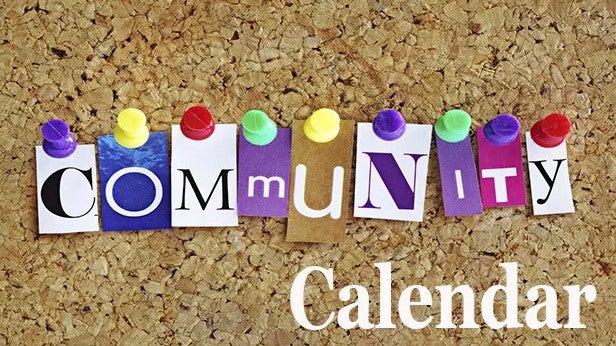Battling cancer together
Published 3:29 am Saturday, October 3, 2009
One of the cruelest facts about breast cancer – or any cancer for that matter – is that it is entirely indiscriminate in its selection. That fact is one Betty Allen thought she knew well when she received her diagnosis in 1991.
“You have a feeling of ‘why me,’” Betty says, remembering the sobering news she received on Oct. 31, 1991. “Here I have done everything right; no smoking and I’ve tried to stay in the best shape I could stay in and I get this dreaded disease.”
It is a truth that would show itself valid again some 17 years later when Naomi, her daughter-in-law, got the news from her doctor.
“I was mad that it had taken someone so young,” Betty recalled, “but I realized that the disease does not check whether you are male, female, young or old. It doesn’t matter, doesn’t have a preference.”
At the time of her diagnosis, Betty was 41 years old. Her two children had already left home. As she reflects on the disease’s timing, she considers that point a blessing.
“I was very lucky I didn’t have children at the time,” she said. “It seems like you’re going to treatment all the time.”
For Naomi, the disease was not as considerate. She was just 29 years old. Her son, Zachary, was only four.
“I hadn’t been at my current job for a year I guess,” Naomi recalls. “You’re shocked, mainly. I have no family history. Probably the most surprising aspect was the age when I was diagnosed.”
The news was even more of a surprise for Naomi given that she had undergone a routine exam the previous summer.
“Everything looks good. It looks fine. See you in a year,” she says, reflecting upon what her doctor told her following that regular check-up. “You don’t expect anything unusual at that age.”
What ensued for Naomi was an experience very much akin to the one her mother-in-law had endured nearly two decades earlier. There was the chemo therapy. Then there was the radiation. All of it was followed up by the target therapy.
But through it all, for both women, there was the attitude. For Betty, approach was everything.
“I paced myself better. I was big into physical fitness. I was able to keep up my routine. I just didn’t burn the candle at both ends. I just tried to be as normal as possible. That was a way to take control back,” Betty explains. “When you’re diagnosed, it’s like it has taken over your body. It’s like it’s in control. You feel like you have no control. If you sit at home and worry about what has happened to you, you’re going to feel sorry for yourself. You’ve got to pick yourself up and go through it better than anyone else who has gone through it.”
It was with that same spirit that Betty looked to encourage Naomi when her diagnosis came through in January 2008.
“Betty has been an inspiration to me,” Naomi says plainly. “It has been really great to have her with me through this experience.”
Naomi recalls the same process of questioning that Betty experienced so many years earlier. And, as she relays her account, she reflects the same resolve.
“I think that everything happens so fast that you have to get over that so you can address what’s coming next,” Naomi says. “After a time, you come to rationalize it like, ‘Why not me? We have everything going for us. We have good insurance and have a good support system.’”
Part of that support system for Naomi was Betty, who accompanied her on many of her visits. The pair can hardly contain their amusement as they remember the experience and the jokes they would use to make light of the otherwise daunting circumstances.
“I don’t know how I was supportive just by being there for her,” Betty says. “We had to take something that was not necessarily fun and try to make it fun and laugh at it.”
Now, the two are joined by something deeper. There is a connection between them. It is as tangible as the couch on which they sit in Naomi’s home on a Sunday afternoon in early fall.
They intermittently laugh as they remember both their individual and shared experiences. Neither is hesitant to offer a word of encouragement to women who have yet to go through the plight that unites them in such a diverse sisterhood.
“It’s important to make sure that you’re comfortable with the care you’re getting,” Naomi urges.
“You do it on your terms,” Betty says matter-of-factly, with the same hint of defiance of she displayed 18 years ago when first receiving her diagnosis.
The disease is no less cruel, no less dreaded than it ever has been. But for Betty and Naomi Allen, taking control and approaching it on their terms was crucial. And successfully doing so has allowed each woman the ability to share a laugh on a Sunday afternoon in early fall, cancer free.





